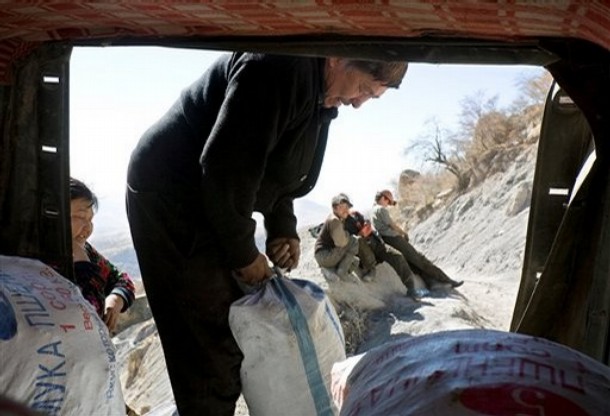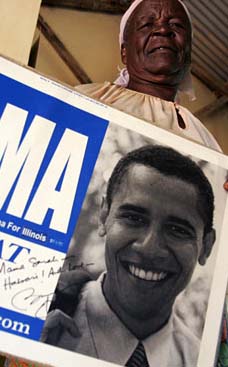
Burning a ton of coal emits about 3 tons of carbon into the atmosphere, so we are responsible for 30 tons of green greenhouse gases! For environmentalists in rich countries, thatís a cause for alarm. For the Kamchibekova clan in Talas, Kyrgyzstan, itís a reason to cheer. Before, the Kamchibekova clan would burn dried sheep dung to stay warm during the brutal Kyrgyz winter. As you might have guessed, dehydrated sheep poo makes for a poor fuel. Global warming alarmists call coal ďdirty,Ē but dung is the dirtiest. Besides being cleaner, coal also contains much more energy than an equivalent amount of dung, so itís more efficient. Environmentalists in rich countries excoriate coal as an evil. At this very moment, Greenpeace-niks are assembling a giant model of the earth in rural Poland, as a focal point for opposition to the expansion of coal in Poland and the world. For hundreds of millions of the worldís poor, however, coal is cleaner and more energy efficient than the alternative. This is one of the many inconvenient truths that environmentalists ignore in their dogged pursuit of a static global ecosystem.
William Yeatman writes: My ex-wife and I buy ten thousand pounds of coal every fall for the Kyrgyz family with whom we lived while we served in the Peace Corps
Celebrate Coal (or, How I Just Tripled My Carbon Footprint)
by William Yeatman
20 November 2008
Caption: Villagers load sacks with coal on a minibus outside an illegal mine in southern Kyrgyzstan, Kok-Janak, Sunday, Oct. 14, 2007. Here in the impoverished Ferghana Valley, illegal coal mining is a dirty, dangerous part of the underground economy. After the region's huge Soviet coal mines closed in the 1990s, jobless men and boys started their own small mining operations, using picks and shovels to claw the fuel out of the mountains. Some are as young as 11, miners say. Photo: Sergey Ponomarev
Our individual carbon footprints are a function of consumption, which, in turn, is a derivative of individual wealth. Accordingly, my carbon footprint should be small, because I am poor. As an adult, Iíve never lived in a space larger than a room, and I donít drive.
Despite my inconspicuous consumption, I have an enormous carbon footprint. Indeed my carbon footprint is so big that it rivals that of a mega-consumer like Leonardo de Caprio, or even a super-mega consumer like Al Gore.
How is that possible? My ex-wife and I buy ten thousand pounds of coal every fall for the Kyrgyz family with whom we lived while we served in the Peace Corps. Burning a ton of coal emits about 3 tons of carbon into the atmosphere, so we are responsible for 30 tons of green greenhouse gases! For environmentalists in rich countries, thatís a cause for alarm. For the Kamchibekova clan in Talas, Kyrgyzstan, itís a reason to cheer.
Before, the Kamchibekova clan would burn dried sheep dung to stay warm during the brutal Kyrgyz winter. As you might have guessed, dehydrated sheep poo makes for a poor fuel. Global warming alarmists call coal ďdirty,Ē but dung is the dirtiest. Besides being cleaner, coal also contains much more energy than an equivalent amount of dung, so itís more efficient.
Environmentalists in rich countries excoriate coal as an evil. At this very moment, Greenpeace-niks are assembling a giant model of the earth in rural Poland, as a focal point for opposition to the expansion of coal in Poland and the world.
For hundreds of millions of the worldís poor, however, coal is cleaner and more energy efficient than the alternative. This is one of the many inconvenient truths that environmentalists ignore in their dogged pursuit of a static global ecosystem.
The enviros say they want to save the planet. But what about the people that live on the planet now?
Bismarck once said that the whole of the Balkans is not worth the bones of one Pomeranian grenadier. I riff on that when I say that the rainforests, or blue whales or any other green grail isnít worth the bones of a single human being. Humans first.













